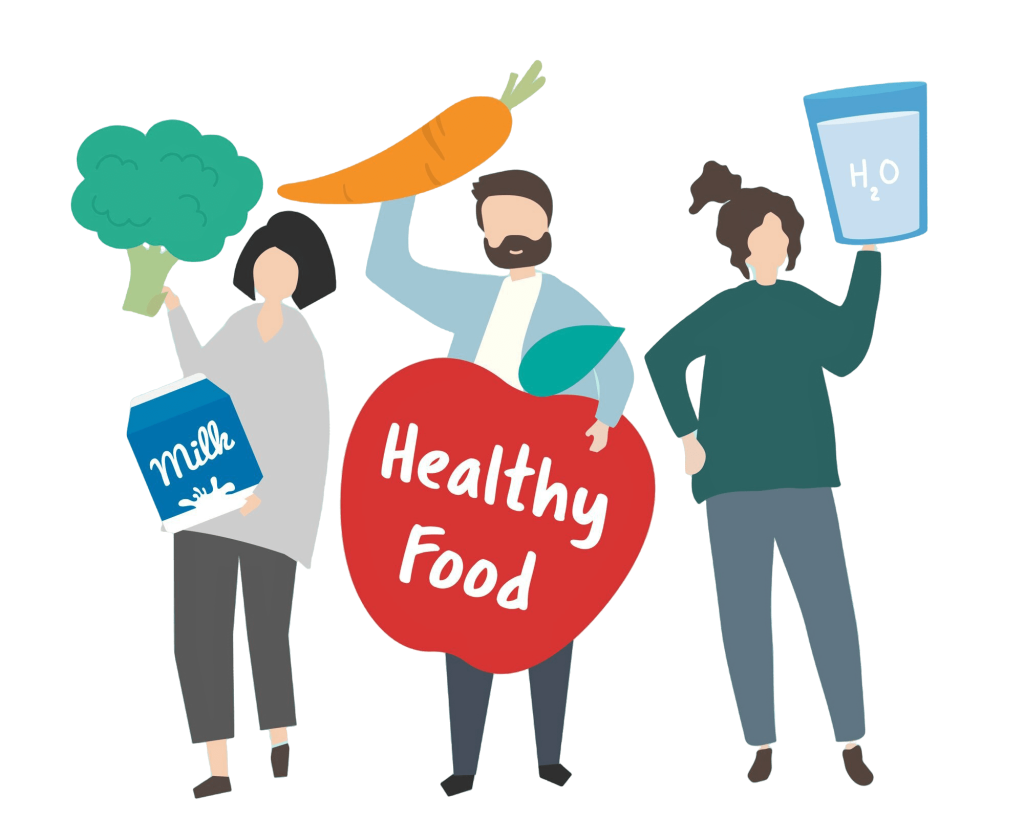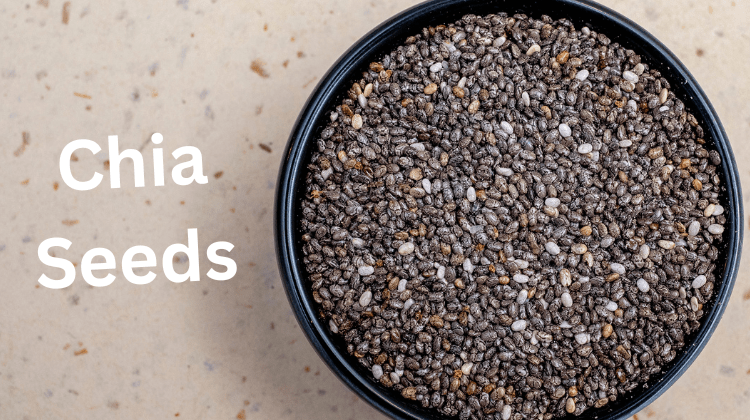Goat milk and cow milk are two of the most widely consumed dairy sources, both rich in calcium, protein, and essential vitamins that support bone health, muscle strength, and overall wellbeing.
As people become more mindful of nutrition and digestion, the comparison between these two milks has gained attention. Each offering unique benefits and distinct nutritional profiles.
People are now more conscious about what they drink, leading to a growing interest in how these two types of milk differ in nutrition, digestion, taste, and health benefits.
Some choose goat milk for its easier digestibility, while others prefer cow milk for its accessibility and affordability.
In this article, you’ll discover a complete nutrition and health comparison of goat milk vs cow milk. It also includes which one is lighter on the stomach, richer in nutrients, and better suited for your health needs.
Nutritional Breakdown: Goat Milk vs Cow Milk
When comparing goat milk vs cow milk, both offer a rich supply of nutrients, but their composition slightly differs, as they influence digestibility, taste, and health benefits. Understanding these differences can help you choose the one that best fits your dietary goals.
Macronutrient Comparison
Both milks provide similar amounts of protein, healthy fats, and carbohydrates, but goat milk tends to have smaller fat globules and different protein structures, making it easier to digest for some people.
Protein: Both are excellent sources, but goat milk’s protein forms a softer curd in the stomach, aiding digestion.
Fats: Goat milk has more medium-chain fatty acids (MCTs), which are absorbed quickly and used as energy instead of being stored as fat.
Carbohydrates: Both contain lactose, but goat milk typically has slightly less, making it a gentler option for those with mild lactose intolerance.
Vitamins and Minerals
Goat milk naturally contains more calcium, potassium, and vitamin A, while cow milk has higher levels of vitamin B12 and folate, which are vital for red blood cell formation and nervous system health.
| Nutrient (per 100ml) | Goat Milk | Cow Milk |
| Calories | 68 kcal | 61 kcal |
| Protein | 3.1 g | 3.3 g |
| Fat | 4.0 g | 3.2 g |
| Carbohydrates | 4.5 g | 4.7 g |
| Calcium | 134 mg | 120 mg |
| Potassium | 204 mg | 150 mg |
| Magnesium | 14 mg | 12 mg |
| Vitamin B12 | 0.1 µg | 0.4 µg |
| Lactose | 4.4 g | 4.8 g |
(Values are approximate and may vary by brand and processing method.)
Lactose and Digestion
Goat milk’s slightly lower lactose level, combined with smaller fat molecules and a softer curd, makes it easier to digest for many people who experience bloating or discomfort from cow milk. However, it still contains lactose so those with true lactose intolerance should exercise caution.
Key takeaway: Both goat and cow milk are nutritious, but goat milk stands out for digestibility and mineral richness, while cow milk remains an excellent source of vitamin B12 and folate.
Protein Quality and Digestibility
Protein is one of the most important nutrients in milk. It supports muscle repair, hormone production, and overall body function. However, not all milk proteins behave the same way during digestion.
Different Protein Structures
- Goat milk contains A2 casein, while most cow milk varieties contain A1 casein. This subtle difference affects how the protein is broken down in the digestive system.
- A1 protein (found in most cow milk) produces a peptide called BCM-7, which may trigger inflammation or discomfort in sensitive individuals.
- A2 protein (found in goat milk and some A2-labeled cow milk brands) is gentler on the stomach and less likely to cause bloating or digestive issues.
Softer Curd Formation
When digested, goat milk forms a softer, looser curd compared to cow milk’s denser curd. This allows the stomach to process it more easily, making goat milk ideal for those who experience heaviness or gas after drinking milk.
Allergy Considerations
People allergic to cow milk protein may still react to goat milk, as both contain similar proteins but those with mild sensitivities often tolerate goat milk better. Always consult a healthcare professional before switching.
Fat Composition and Cholesterol Impact
The type of fat in milk influences not just taste, but also digestion and heart health. Goat and cow milk differ significantly in their fat structures and how they affect the body.
Short- and Medium-Chain Fatty Acids
- Goat milk is naturally rich in medium-chain triglycerides (MCTs) — a type of fat that’s absorbed quickly and used for energy rather than stored.
- Goat milk: Contains more capric, caprylic, and caproic acids, which are antimicrobial and support gut health.
- Cow milk: Has higher amounts of long-chain fatty acids, which take longer to digest.
Lighter and Easier to Digest
Because of its smaller fat globules and higher MCT content, goat milk doesn’t require homogenization and is naturally easier on digestion. It’s often preferred by people who find cow milk heavy or difficult to digest.
Impact on Cholesterol and Heart Health
Research suggests that the MCTs in goat milk may help support healthy cholesterol levels by increasing HDL (good cholesterol) and reducing LDL (bad cholesterol).
However, both milks should be consumed in moderation, especially for individuals managing high cholesterol or heart disease.
Key takeaway: Goat milk is lighter, digests faster, and may be more heart-friendly due to its healthy fat profile, while cow milk provides a more balanced fat structure ideal for general nutrition.
Lactose Sensitivity and Digestive Comfort
Lactose, the natural sugar in milk, is one of the main reasons people experience bloating, gas, or discomfort after drinking dairy. While both cow and goat milk contain lactose, their effects on digestion differ slightly.
Goat Milk and Lactose Intolerance
Goat milk contains slightly less lactose than cow milk (about 4.1% vs. 4.7%) and is often better tolerated by individuals with mild lactose sensitivity. Its smaller fat globules and softer curd also aid digestion, helping reduce bloating or heaviness.
Moreover, it’s not completely lactose-free. People with severe lactose intolerance may still experience symptoms and should choose lactose-free milk or plant-based alternatives.
Cow Milk and Digestive Issues
Cow milk’s higher lactose content, combined with A1 casein, can lead to incomplete digestion in sensitive people. This often results in:
- Bloating and abdominal discomfort
- Gas and cramping
- A feeling of heaviness after drinking milk
Enzyme and pH Factors
The lactase enzyme (responsible for breaking down lactose) naturally declines in many adults, making digestion harder. Goat milk’s slightly more alkaline pH helps balance stomach acidity, which may further ease digestion.
Key takeaway: Goat milk is easier on the stomach for people with mild lactose intolerance due to its lower lactose content, alkaline nature, and gentler proteins, but it’s not suitable for those with complete lactose intolerance.
Taste, Texture, and Culinary Uses
The taste and texture of milk can greatly influence your cooking and drinking experience. While both cow and goat milk are nutritious, they offer distinctly different flavor profiles and culinary results.
Flavor Profile
- Cow Milk: Mild, creamy, and slightly sweet and is ideal for those who prefer a classic dairy flavor.
- Goat Milk: Has a tangy, earthy note due to certain fatty acids. The taste is more pronounced if the milk isn’t fresh, but pasteurized and chilled goat milk tastes surprisingly smooth.
Best Uses in Beverages and Recipes
- For Tea and Coffee: Cow milk blends better because of its neutral taste and creamy texture.
- For Yogurt, Cheese, and Desserts: Goat milk is excellent for tangy products like feta cheese, kefir, and creamy desserts.
- Smoothies & Baking: Goat milk adds richness and a unique depth of flavor without overpowering sweetness.
Shelf Life and Cooking Consistency
Goat milk has a shorter shelf life than cow milk due to its higher fatty acid activity, which can change the taste faster.
Cow milk, on the other hand, tends to stay fresh longer and remains stable under heat, making it ideal for large-batch cooking or baking.
Tip: If you’re new to goat milk, start by mixing it with cow milk in equal parts, it helps your palate adjust to the flavor while enjoying its digestive benefits.
Goat Milk vs Cow Milk – Health Benefits Comparison
Both goat milk and cow milk are powerhouses of nutrition — but their health benefits differ based on how your body digests and absorbs nutrients. Understanding these distinctions helps you choose the one that best fits your wellness goals.
- Better Digestion: Its smaller fat globules, A2 casein, and slightly lower lactose make goat milk easier to digest, especially for those with mild lactose sensitivity.
- Skin Health: Rich in vitamin A and zinc, goat milk supports skin repair, helps maintain elasticity, and soothes inflammation, one reason it’s used in skincare and baby formulas.
- Immunity Support: Contains higher levels of selenium, an essential antioxidant mineral that strengthens immune defenses.
- Gut Health: The fatty acids and prebiotic oligosaccharides in goat milk promote a healthy gut microbiome.
- Cow Milk Benefits
- Muscle Building: High in complete proteins (casein and whey), cow milk supports muscle recovery and strength, making it popular among athletes.
- Bone Strength: Provides more calcium and vitamin B12, both crucial for strong bones, red blood cell formation, and energy metabolism.
- Affordability & Availability: Cow milk is more widely available and cost-effective, making it a convenient daily source of nutrition.
- Nutrient Density and Bioavailability
While cow milk generally has slightly more protein and calcium, the nutrients in goat milk are more bioavailable, meaning your body absorbs and utilizes them more efficiently.
Who Should Choose Which?
The best milk for you depends on your age, lifestyle, and health goals. Both goat and cow milk offer benefits, but their suitability varies across groups.
For Children
Cow Milk: Provides higher calcium and protein content, which supports bone growth and development after infancy.
Goat Milk: A gentler alternative for kids who experience mild digestive issues or cow milk sensitivity — but it should only be given under a pediatrician’s guidance.
For Seniors
Goat Milk: Easier to digest, less likely to cause bloating, and helps improve calcium absorption for bone strength.
Cow Milk: Still beneficial but may cause discomfort in those with declining lactase enzyme activity.
For Athletes and Active Adults
Cow Milk: Ideal for muscle recovery due to its balanced protein ratio of whey and casein.
Goat Milk: Offers quick energy through medium-chain fatty acids (MCTs), supporting endurance and fat metabolism.
For Special Diets
Keto or Low-Carb Diets: Goat milk is slightly lower in carbs and easier on digestion.
Low-Fat Diets: Opt for skimmed cow milk to cut calories while keeping protein intake high.
Organic and Clean Eating: Choose organic, pasture-raised milk (goat or cow) for fewer hormones and additives.
Cow milk works best for growing children, athletes, and those seeking muscle or bone health benefits at a lower cost.
Key Takeaway: Which Is Better for You?
Both goat milk and cow milk offer exceptional nutrition — the difference lies in how your body responds and what your lifestyle demands.
| Feature | Goat Milk | Cow Milk |
| Digestibility | Easier to digest due to A2 protein and smaller fat globules | May cause bloating or heaviness in sensitive individuals |
| Lactose Content | Slightly lower, suitable for mild intolerance | Higher, not ideal for lactose-sensitive people |
| Nutrients | More bioavailable calcium, magnesium, and vitamin A | Higher protein and vitamin B12 |
| Taste & Texture | Tangy, light, and earthy | Creamy and mild |
| Environmental Impact | Lower footprint, sustainable | Higher emissions and resource use |
💡 Final Verdict
- Choose Goat Milk if you value easy digestion, immune support, and sustainability. It’s a great fit for people with mild lactose sensitivity or those seeking a gentler, nutrient-rich option.
- Choose Cow Milk if you prioritize muscle recovery, affordability, and bone strength. It’s more accessible and ideal for children, athletes, and active adults.
FAQs About About Milk vs Cow Milk
Is goat milk healthier than cow milk?
Both milks are nutritious, but goat milk is often considered healthier for digestion. It contains smaller fat globules, A2 casein, and slightly less lactose, making it gentler on the stomach. Cow milk, however, offers more protein and vitamin B12, supporting muscle and bone strength.
Can people with lactose intolerance drink goat milk?
Goat milk contains less lactose than cow milk, and its nutrients are more easily absorbed. Many people with mild lactose intolerance can tolerate it without discomfort. However, those with severe lactose intolerance should avoid all animal milks and choose lactose-free or plant-based alternatives instead.
Which milk has more calcium?
Both milks are excellent sources of calcium, but cow milk usually contains slightly more calcium per 100ml. However, the calcium in goat milk is more bioavailable, meaning your body absorbs and uses it more efficiently, especially if you have digestive issues.
Is goat milk good for babies or toddlers?
Goat milk can be gentler for toddlers with mild sensitivities to cow milk, thanks to its softer proteins and digestibility. However, it’s not suitable for infants under 1 year old, as it lacks certain essential nutrients like folate and vitamin B12 that babies need for proper growth.
Which milk is better for weight loss?
Both can fit into a healthy weight-loss plan when consumed in moderation. Goat milk’s medium-chain fatty acids (MCTs) may help boost metabolism and promote satiety, while low-fat cow milk provides protein that supports muscle tone.



